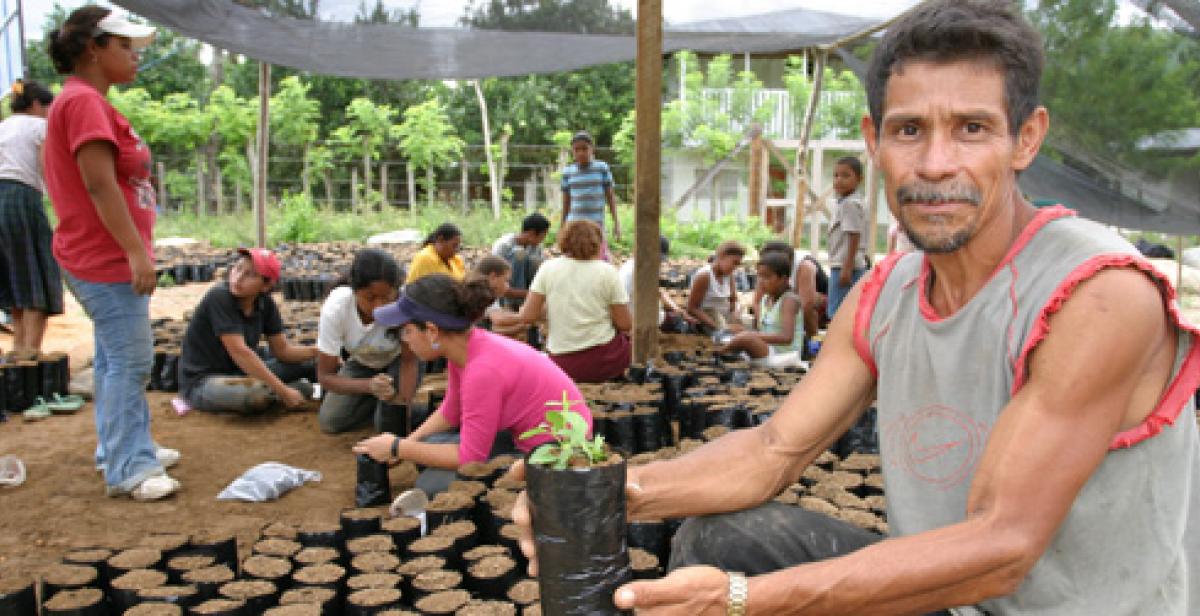Providing alternate livelihoods to those who used to make a living out of illegal logging and to the 80 families in the community of Plan Grande is the next step in ensuring their forests are protected.
“What are we going to eat? We can’t eat electricity (a reference to the hydroelectric powerstation),” people tell Oscar.
Former loggers have now begun to grow banana and yucca, Oscar says. And in his community, Plan Grande, they are trying to introduce crops such as cocoa and lychees. The goal is to be able to grow crops in lower areas. In addition, at least one young man in each of the 80 families of the community works in fishing boats for major industrial fishing companies.
Popol Nah Tun, a Progressio partner organisation in the northern coast, has trained the people in agro-forestry techniques that prevent them from burning forests to grow food. Instead they are growing banana and yucca in harmony with the forest; they care for the environment using organic fertilizers.
Neighbours in Plan Grande are lucky, Oscar says. “Unlike others, we do not lack water. But the population is growing and demand for water is expected to increase. If we are not careful with water, what will the future hold for us?”
The local Forestry Community Consultation Committee (participatory local groups charged with managing forest resources) is responding to illegal overexploitation of mahogany and cedar by planting about 400 of these trees near the river banks. “There used to be mahogany trees in the mountains, but not any longer: they cut them all down,” Oscar regrets.
The community started a nursery management plan in the community to recover those species, and is also planting fruit trees and other non timber-yielding trees.
Oscar feels both the community and the municipality Forest Consultation Committees in which he takes part are making progress. “In the Plan Grande Committee we are making people aware of the need to look after forests. We are also reforesting, while in the Municipality Consultation Committee we take care of the technical and legal aspects needed for the legal protection of the basins."
Nuria Zayas is a Progressio development worker in Honduras



